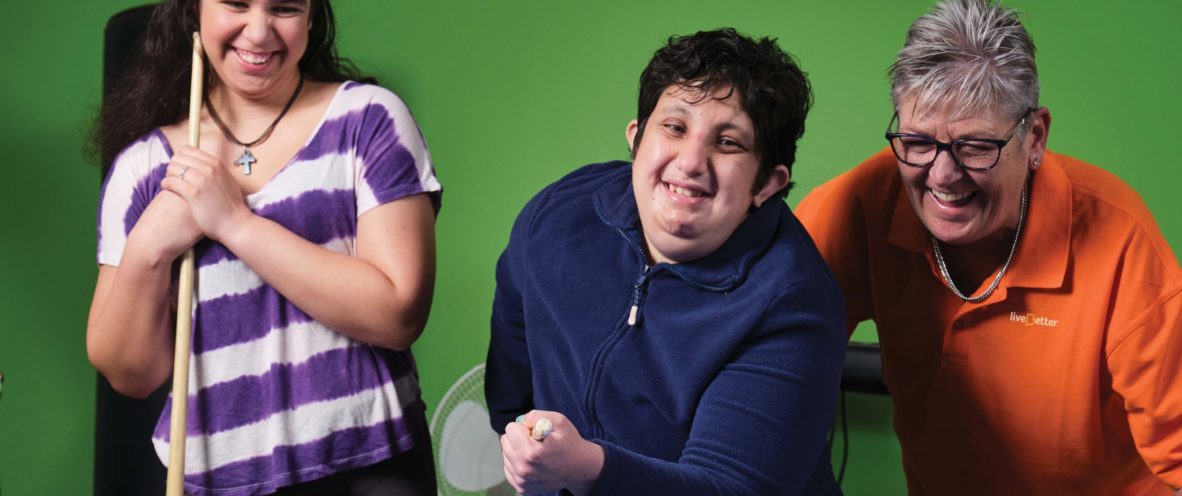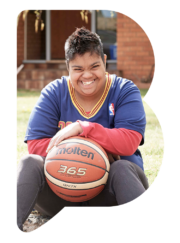Disability and NDIS Glossary

Access Request Form (ARF)
To apply for the NDIS, the NDIA needs to know some information about you. The Access Request Form provides the NDIA with the information they need to work out if you are eligible.
Carer
A carer is someone who provides care or support to a person with a disability, but they are unpaid. Carers are often family members or guardians.
Early intervention
Early intervention support can be for both children and adults. It is about providing support at the earliest possible stage to reduce the impacts of disability or developmental delay.
Functional impact
Describes a person’s disability and how it has an affects their day-to-day life.
Goals
Things a participant wishes they could do or achieve in the future, with the help of the NDIS. This might be finding a job, learning a new skill, or becoming more independent.
Inclusion
This is about how a person takes part in their local neighbourhood and community. You can do this in many ways such as joining a club, volunteering, having a job, doing a course, and much more.
Informal supports
Families, friends, and the community can play an important part in the lives of people with a disability. Support provided by these groups of people can be referred to as informal supports.
Local Area Coordinator (LAC)
LACs are local organisations working in partnership with the NDIA. They help participants write and manage their plans and also connect participants to mainstream services and supports.
Mainstream services
Mainstream services are for all people with or without a disability. They include health, mental health, education, housing, child protection, employment services, and others.
NDIA (National Disability Insurance Agency)
This is the name of the organisation that the government has set up to run the NDIS across Australia.
NDIS (National Disability Insurance Scheme)
This is the new national scheme for supporting people with permanent and significant disability which impacts on their ability to take part in everyday activities.
Find out more about what the NDIS is:
NDIS Plan
Every NDIS participant has an NDIS plan. You will receive this after you have your planning meeting.
Your plan will include information about:
- Your disability
- Your day-to-day activities and goals
- Where you live and who you live with
- Supports you get from family and friends
- Disability supports and services
- How much funding the NDIS will give you to pay for supports
NDIS price guide
Prices for reasonable and necessary supports are listed in the NDIS price guide. The price guide is developed, published, and updated by the NDIA.
NDIS Quality and Safeguards Commission
This Commission is a new independent Commonwealth agency. It was set up to improve the quality and safety of NDIS supports and services.
Nominee
If a person doesn’t have a parent or guardian they might appoint a Nominee to act and make decisions for them.
Participant
Often people who have an NDIS plan are referred to as a NDIS participant.
Planning process
This is the process where an NDIS participant will work with a Local Area Coordinator or an NDIA planner to plan what supports they need from the NDIS so that they can achieve their goals.
Plan review
An NDIS participant’s plan will generally be reviewed after 12 months. At this time the NDIA will contact the participant to check if their supports are working well and if they are making progress towards their goals.
A person can also request a review of their plan at any time if their situation has changed or if they are not happy with what is in their plan.
Provider
A provider is a person or an organisation that delivers services and supports to participants of the NDIS. LiveBetter is a registered NDIS provider.
Reasonable and necessary supports
The NDIS provides funding for supports that are ‘reasonable and necessary’. Reasonable means something fair and necessary means something you must have.
Self-management
This is when a participant and their family manage the funding and supports in their NDIS plan.
Service Agreement
This is a written agreement created with a service provider that sets out what supports the participant will receive from the provider, how and when these supports will be provided and at what cost.
Support package
The word used by the NDIA to describe the funding a person receives for their supports.
Support Coordinator
When you have an NDIS plan, you can decide which service providers you work with.
Some people find and coordinate their services themselves, but it can be quite difficult. That’s when Support Coordination might be included in your NDIS plan. Support Coordinators can help find mainstream and other disability services.
